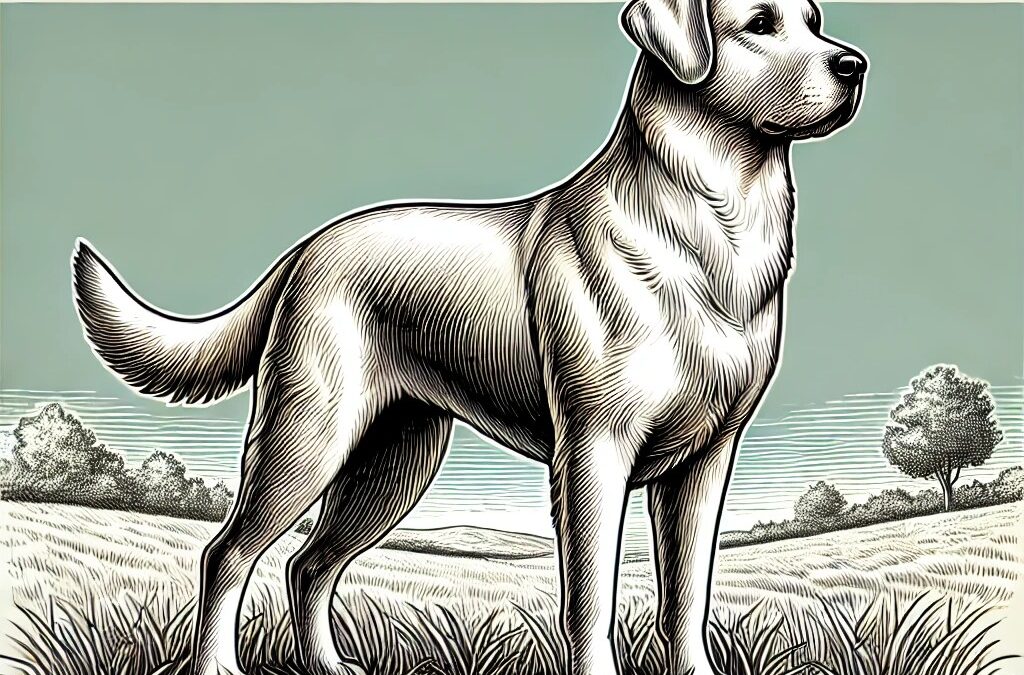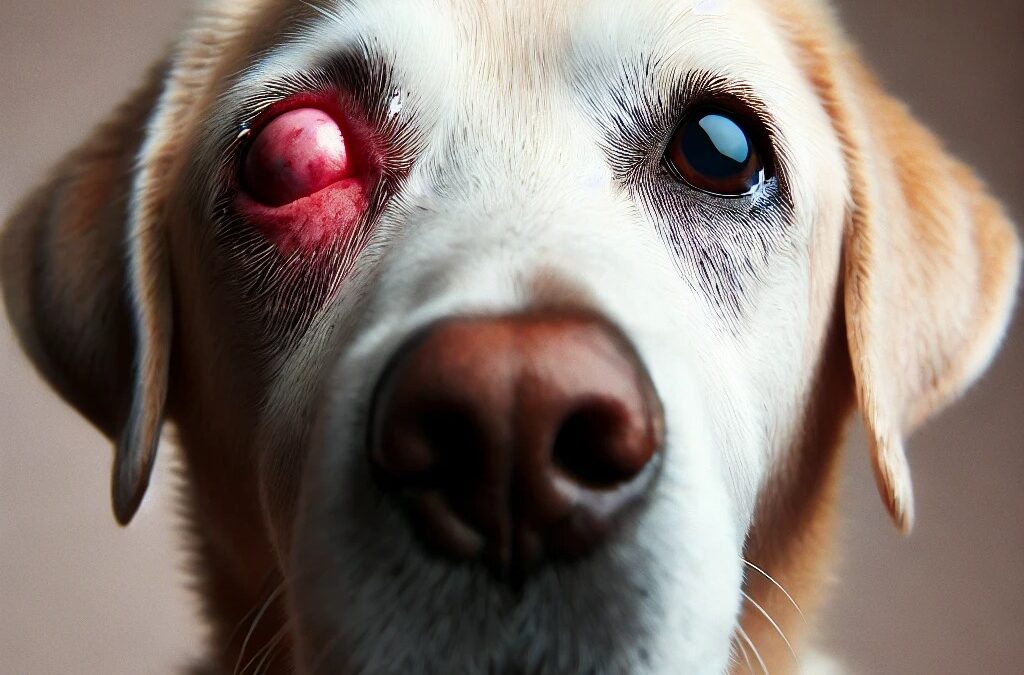
door TCMVET | 4 juli 2024 | Hondenkanker en tumoren
Botkanker bij honden, ook bekend als osteosarcoom, is een geduchte tegenstander voor onze harige metgezellen. Als eigenaren van gezelschapsdieren is het begrijpen van de gevolgen van deze ziekte van cruciaal belang, vooral als het gaat om de kans op verlamming. Dit artikel gaat in op de fijne kneepjes van botkanker bij honden, de symptomen ervan, de behandelingsopties en hoe dit tot verlamming kan leiden, en biedt waardevolle inzichten voor eigenaren van gezelschapsdieren die hun geliefde huisdieren willen beschermen.
Botkanker bij honden begrijpen
Osteosarcoom is de meest voorkomende vorm van botkanker bij honden en treft vooral grote en grote rassen. Deze agressieve kanker vindt zijn oorsprong in het bot, wat leidt tot pijn, zwelling en uiteindelijk de vernietiging van het bot zelf. Vroege detectie is essentieel voor een effectieve behandeling, maar de symptomen kunnen vaak worden aangezien voor minder ernstige aandoeningen zoals artritis of lichte verwondingen.
Symptomen waar u op moet letten
Het herkennen van de vroege tekenen van osteosarcoom kan een aanzienlijk verschil maken in de prognose van uw hond. Veel voorkomende symptomen zijn onder meer:
- Kreupelheid: Aanhoudend mank lopen of moeite hebben met lopen is vaak een van de eerste tekenen.
- Zwelling: Merkbare zwelling op de plaats van de tumor, meestal rond de ledematen.
- Pijn: Uw hond kan tekenen van ongemak of pijn vertonen bij aanraking of bij gebruik van het aangedane ledemaat.
- Vermoeidheid: Verminderd activiteitenniveau en onwil om te spelen of te sporten.
- Gewichtsverlies: Onverklaarbaar gewichtsverlies ondanks normale eetgewoonten.
Het verband tussen botkanker en verlamming
Een van de meest verwoestende complicaties van botkanker bij honden is de kans op verlamming. Naarmate de tumor groeit, kan deze druk uitoefenen op omliggende weefsels, inclusief zenuwen. Als de kanker zich uitbreidt naar de wervelkolom of het ruggenmerg aantast, kan dit leiden tot gedeeltelijke of volledige verlamming. Deze vooruitgang onderstreept het belang van vroege detectie en interventie.
Diagnose en behandelingsopties
Het diagnosticeren van osteosarcoom omvat doorgaans een combinatie van lichamelijk onderzoek, röntgenfoto's en biopsieën. Eenmaal bevestigd, kunnen de behandelingsopties het volgende omvatten:
- Chirurgie: Amputatie van het aangedane ledemaat wordt vaak aanbevolen om de primaire tumor te verwijderen en de pijn te verlichten.
- Chemotherapie: Om uitzaaiingen aan te pakken en de overlevingskansen te verbeteren, wordt chemotherapie vaak naast een operatie toegediend.
- Bestralingstherapie: Dit kan worden gebruikt om pijn te beheersen en de tumorgrootte te verkleinen, vooral in gevallen waarin een operatie niet haalbaar is.
Alternatieve en complementaire therapieën
Naast conventionele behandelingen onderzoeken veel eigenaren van gezelschapsdieren alternatieve therapieën om de gezondheid van hun hond te ondersteunen. Deze kunnen het volgende omvatten:
- CBD-olie: CBD-olie staat bekend om zijn ontstekingsremmende en pijnstillende eigenschappen en wordt steeds vaker gebruikt om de symptomen van kanker te beheersen en de kwaliteit van leven te verbeteren.
- Voedingssupplementen: Supplementen zoals omega-3-vetzuren en antioxidanten kunnen de algehele gezondheid ondersteunen en het immuunsysteem versterken.
- Fysiotherapie: Op maat gemaakte oefeningen en therapieën kunnen helpen de mobiliteit en spierkracht te behouden, waardoor het risico op verlamming wordt verminderd.
Preventieve maatregelen en regelmatige controles
Hoewel osteosarcoom niet altijd kan worden voorkomen, kunnen regelmatige veterinaire controles en een gezonde levensstijl een belangrijke rol spelen bij de vroege detectie en behandeling. Het handhaven van een actieve levensstijl, het bieden van een uitgebalanceerd dieet en het monitoren van eventuele veranderingen in het gedrag of de fysieke conditie van uw hond zijn essentiële stappen om zijn gezondheid te beschermen.
Botkanker bij honden is een uitdagende diagnose, maar het begrijpen van de implicaties ervan, vooral de dreiging van verlamming, stelt eigenaren van gezelschapsdieren in staat proactieve maatregelen te nemen. Vroegtijdige detectie, gecombineerd met een uitgebreid behandelplan, kan de levenskwaliteit van uw hond aanzienlijk verbeteren en mogelijk de tijd die hij bij u doorbrengt verlengen. Blijf waakzaam, blijf op de hoogte en koester elk moment met uw trouwe metgezel.

door TCMVET | 3 juli 2024 | Hondenkanker en tumoren
Als we aan kanker bij honden denken, ligt de nadruk vaak op tumoren en hun directe effecten. De impact van kanker op het evenwicht en de coördinatie van een hond is echter een cruciaal aspect dat de kwaliteit van leven aanzienlijk kan beïnvloeden. Dit artikel onderzoekt hoe kanker deze kritieke functies beïnvloedt en wat eigenaren van gezelschapsdieren kunnen doen om hun harige vrienden te helpen deze uitdagingen het hoofd te bieden.
Het verband tussen hondenkanker en evenwichtsproblemen
1. Hersentumoren en neurologische effecten
Hersentumoren zijn een primaire oorzaak van evenwichts- en coördinatieproblemen bij honden. Deze tumoren kunnen de normale functies van de hersenen verstoren, inclusief de functies die beweging en evenwicht controleren. Symptomen kunnen zijn:
- Hoofd kantelen: Een merkbare kanteling van het hoofd naar één kant.
- Cirkelen: Lopen in cirkels in plaats van in een rechte lijn.
- Struikelen en vallen: Moeite met het bewaren van het evenwicht, wat leidt tot frequente valpartijen.
- Aanvallen: Ongecontroleerde bewegingen die de algehele coördinatie kunnen beïnvloeden.
2. Tumoren in het binnenoor
Het binnenoor speelt een cruciale rol bij het handhaven van het evenwicht. Tumoren in dit gebied kunnen het vestibulaire systeem verstoren, wat leidt tot:
- Duizeligheid: Honden kunnen gedesoriënteerd en onstabiel overkomen.
- Nystagmus: Snelle, onwillekeurige oogbewegingen.
- Verlies van coördinatie: Moeite met normaal lopen of staan.
3. Gemetastaseerde kanker
Kanker die zich van de oorspronkelijke locatie naar andere delen van het lichaam verspreidt, kan ook het evenwicht en de coördinatie beïnvloeden. Kanker die uitzaait naar de wervelkolom kan bijvoorbeeld het ruggenmerg samendrukken, waardoor het vermogen van een hond om te lopen en het evenwicht te bewaren wordt beïnvloed.
Symptomen waar u op moet letten
Vroege detectie is de sleutel tot het beheersen van evenwichts- en coördinatieproblemen bij honden met kanker. Symptomen die moeten worden gecontroleerd, zijn onder meer:
- Onvaste gang: Lopen met wiebelende of onvaste stappen.
- Gebrek aan coordinatie: Moeilijkheid bij het uitvoeren van routinematige bewegingen.
- Onwil om te verhuizen: Het vermijden van fysieke activiteit vanwege ongemak of instabiliteit.
- Frequente valpartijen: Vaker struikelen of vallen dan normaal.
- Oog- en hoofdbewegingen: Abnormale oogbewegingen of kantelen van het hoofd.
Diagnose en behandeling
Een juiste diagnose en tijdige interventie kunnen helpen de impact van kanker op het evenwicht en de coördinatie van uw hond te beheersen. Veterinaire zorg kan bestaan uit:
1. Neurologisch onderzoek
Een uitgebreid neurologisch onderzoek kan helpen de onderliggende oorzaak van evenwichtsproblemen te identificeren. Dit kan het volgende inhouden:
- Reflextesten: Controle van ledemaatreflexen en -reacties.
- Beoordeling van oogbewegingen: Observeren van nystagmus of abnormale oogbewegingen.
- Ganganalyse: Evaluatie van looppatronen en coördinatie.
2. Beeldvormingstechnieken
Geavanceerde beeldvormingstechnieken zoals MRI- en CT-scans kunnen tumoren in de hersenen, het binnenoor of de wervelkolom detecteren, waardoor een duidelijk beeld ontstaat van de getroffen gebieden.
3. Behandelingsopties
De behandeling hangt af van het type en de locatie van de kanker. Opties kunnen zijn:
- Chirurgie: Het verwijderen van tumoren die toegankelijk en operabel zijn.
- Bestralingstherapie: Tumoren richten met bestraling om ze te verkleinen en de symptomen te verlichten.
- Chemotherapie: Medicijnen gebruiken om de groei en verspreiding van tumoren te vertragen.
- Ondersteunende zorg: Medicijnen om de symptomen onder controle te houden en de kwaliteit van leven te verbeteren.
Ondersteuning van uw hond thuis
Om uw hond te helpen omgaan met evenwichts- en coördinatieproblemen, moet u thuis enkele aanpassingen maken:
1. Veilige omgeving
Zorg ervoor dat uw huis vrij is van obstakels waardoor uw hond kan struikelen of vallen. Gebruik antislipmatten en verwijder rommel uit paden.
2. Hulpmiddelen
Overweeg het gebruik van harnassen of steunbanden om uw hond veilig te laten bewegen.
3. Zachte oefening
Moedig zachte oefeningen aan om de spierkracht en coördinatie te behouden, maar vermijd activiteiten die vallen of letsel kunnen veroorzaken.
4. Regelmatige dierenartsbezoeken
Blijf op de hoogte van regelmatige veterinaire controles om de toestand van uw hond te controleren en indien nodig de behandelingen aan te passen.
Kanker bij honden kan een aanzienlijke invloed hebben op het evenwicht en de coördinatie van een hond, maar met vroege detectie, passende behandeling en ondersteunende zorg kunt u uw harige vriend helpen deze uitdagingen het hoofd te bieden. Door waakzaam en proactief te blijven, kunt u ervoor zorgen dat uw hond de best mogelijke levenskwaliteit behoudt.

door TCMVET | 3 juli 2024 | Hondenkanker en tumoren
Het begrijpen van de ingewikkelde relatie tussen kanker bij honden en de bloedsuikerspiegel is van vitaal belang voor eigenaren van gezelschapsdieren en dierenartsen. Recente onderzoeken suggereren dat het beheersen van de bloedsuikerspiegel een cruciale rol kan spelen bij de behandeling en preventie van kanker bij honden. Dit artikel gaat dieper in op het verband tussen kanker en bloedsuikerspiegel en belicht belangrijke inzichten en praktische stappen om de gezondheid van uw hond te behouden.
Hoe bloedsuikerspiegels hondenkanker beïnvloeden
1. De rol van glucose bij de groei van kanker
Kankercellen gedijen op glucose en gebruiken het als primaire energiebron om hun snelle groei en proliferatie te stimuleren. Verhoogde bloedsuikerspiegels kunnen een omgeving creëren die de ontwikkeling en verspreiding van kanker ondersteunt. Door dit verband te begrijpen, kunnen eigenaren van gezelschapsdieren proactieve stappen ondernemen om de bloedsuikerspiegel van hun hond te reguleren, waardoor de progressie van kanker mogelijk wordt vertraagd.
2. Insulineresistentie en kankerrisico
Net als bij mensen kan insulineresistentie bij honden leiden tot verhoogde bloedsuikerspiegels. Insulineresistentie treedt op wanneer cellen minder reageren op insuline, een hormoon dat helpt bij het reguleren van de bloedsuikerspiegel. Deze aandoening verhoogt niet alleen het risico op diabetes, maar creëert ook een gunstige omgeving waarin kankercellen kunnen groeien. Het monitoren en beheersen van de insulineresistentie is daarom een cruciaal aspect van de preventie en behandeling van kanker bij honden.
Symptomen en diagnose
Het herkennen van de symptomen van een verstoorde bloedsuikerspiegel en kanker bij honden is essentieel voor vroege detectie en interventie. Veelvoorkomende symptomen zijn onder meer:
- Verhoogde dorst en plassen: Deze kunnen wijzen op een hoge bloedsuikerspiegel.
- Unexplained Weight Loss: Ondanks goed eten kan gewichtsverlies wijzen op diabetes of kanker.
- Lethargie: Lage energieniveaus kunnen een symptoom zijn van zowel een hoge bloedsuikerspiegel als kanker.
- Frequente infecties: Een hoge bloedsuikerspiegel kan het immuunsysteem verzwakken, waardoor honden vatbaarder worden voor infecties.
- Zichtbare tumoren of knobbels: Fysieke tekenen van kanker die onmiddellijke veterinaire aandacht vereisen.
Om deze aandoeningen te diagnosticeren, kunnen dierenartsen bloedtesten, glucosetolerantietests en biopsieën uitvoeren om de onderliggende problemen te identificeren en een behandelplan te ontwikkelen.
Beheer van de bloedsuikerspiegel bij honden met kanker
1. Dieet en voeding
Een uitgebalanceerd dieet met weinig eenvoudige suikers en veel eiwitten en vezels kan de bloedsuikerspiegel helpen reguleren. Voedingsmiddelen met een lage glycemische index geven glucose langzaam af, waardoor pieken in de bloedsuikerspiegel worden voorkomen. Overweeg om deze elementen in het dieet van uw hond op te nemen:
- Magere eiwitten: Kip, kalkoen en vis
- Vezelrijke groenten: Sperziebonen, wortelen en pompoen
- Volkoren: Bruine rijst en haver
Overleg met uw dierenarts om een voedingsplan op maat op te stellen dat voldoet aan de specifieke behoeften van uw hond.
2. Regelmatige lichaamsbeweging
Lichamelijke activiteit helpt de bloedsuikerspiegel te reguleren en een gezond gewicht te behouden, waardoor het risico op zowel diabetes als kanker wordt verminderd. Betrek uw hond regelmatig bij wandelingen, spelsessies en activiteiten die hem actief en fit houden.
3. Medicijnen en supplementen
In sommige gevallen kunnen dierenartsen medicijnen voorschrijven om de bloedsuikerspiegel onder controle te houden of supplementen aanbevelen die de metabolische gezondheid ondersteunen. Deze kunnen het volgende omvatten:
- Insuline: Voor honden met de diagnose diabetes
- Omega-3 vetzuren: Ter ondersteuning van de algehele gezondheid en om ontstekingen te verminderen
- Antioxidanten: Om oxidatieve stress te bestrijden en het immuunsysteem te ondersteunen
4. Regelmatige controle
Regelmatige veterinaire controles en bloedtesten zijn van cruciaal belang voor het controleren van de bloedsuikerspiegel en de algehele gezondheid van uw hond. Vroegtijdige detectie van eventuele onevenwichtigheden maakt snelle aanpassingen aan hun behandelplan mogelijk.
Het begrijpen van het verband tussen kanker bij honden en de bloedsuikerspiegel biedt een nieuw perspectief op het beheer van de gezondheid van uw hond. Door een evenwichtige bloedsuikerspiegel te handhaven door middel van goede voeding, lichaamsbeweging en diergeneeskundige zorg, kunt u een gezondere omgeving creëren die de progressie van kanker kan helpen voorkomen of vertragen. Blijf proactief en op de hoogte om ervoor te zorgen dat uw harige vriend een lang, gezond leven heeft.

door TCMVET | 3 juli 2024 | Hondenkanker en tumoren
Op het gebied van alternatieve behandelingen voor kanker bij honden is magneettherapie een veelbelovende optie gebleken voor eigenaren van gezelschapsdieren die op zoek zijn naar holistische benaderingen om de gezondheid en het welzijn van hun hond te verbeteren. Dit artikel gaat in op de potentiële voordelen van magneettherapie voor honden met kanker, hoe het werkt en waar u rekening mee moet houden voordat u het in het behandelplan van uw huisdier integreert.
Wat is magneettherapie?
Magneettherapie, ook wel magneetveldtherapie genoemd, omvat het gebruik van statische magnetische velden om de gezondheid te verbeteren. Bij mensen wordt het gebruikt om pijn te verlichten, ontstekingen te verminderen en het algehele welzijn te verbeteren. Voor honden is het concept vergelijkbaar: het aanbrengen van magneten op specifieke delen van het lichaam kan helpen de symptomen onder controle te houden en het genezingsproces te ondersteunen.
Hoe magneettherapie werkt voor honden
Aangenomen wordt dat magneettherapie werkt door de bloedstroom te stimuleren en de afgifte van zuurstof en voedingsstoffen aan weefsels te verbeteren. Deze verhoogde bloedsomloop kan ontstekingen en pijn helpen verminderen, wat veel voorkomende problemen zijn bij honden met kanker. Bovendien wordt aangenomen dat magneten de cellulaire functie beïnvloeden, waardoor mogelijk de natuurlijke genezingsprocessen van het lichaam worden bevorderd.
Voordelen van magneettherapie voor honden met kanker
1. Pijnverlichting
Kanker veroorzaakt vaak aanzienlijk ongemak bij honden. Magneettherapie kan de pijn helpen verlichten door de bloedtoevoer naar de getroffen gebieden te vergroten, de spierspanning te verminderen en de afgifte van endorfines te bevorderen – natuurlijke pijnstillers die door het lichaam worden geproduceerd.
2. Verminderde ontstekingen
Ontsteking is een groot probleem bij hondenkanker en draagt bij aan pijn en de progressie van de ziekte. Het vermogen van magneettherapie om de bloedsomloop te verbeteren kan ontstekingen helpen verminderen, wat leidt tot meer comfort en mobiliteit voor uw huisdier.
3. Verbeterde genezing
Door een betere bloedstroom en oxygenatie te bevorderen, kan magneettherapie de genezing ondersteunen van weefsels die zijn beschadigd door kanker of de behandelingen ervan, zoals een operatie of bestraling. Dit kan helpen bij snellere hersteltijden en een betere algehele gezondheid.
4. Niet-invasief en drugsvrij
Een van de belangrijke voordelen van magneettherapie is dat het niet-invasief is en dat er geen medicijnen bij betrokken zijn, waardoor het een geschikte optie is voor honden die traditionele medicijnen mogelijk niet goed verdragen.
Overwegingen en voorzorgsmaatregelen
Voordat u met magneettherapie voor uw hond begint, is het van cruciaal belang om een dierenarts te raadplegen, bij voorkeur iemand die ervaring heeft met holistische en alternatieve behandelingen. Hier zijn enkele overwegingen:
1. Professionele begeleiding
Een dierenarts kan advies geven over het juiste type en sterkte van de te gebruiken magneten, evenals de juiste plaatsing en duur van de behandeling om de veiligheid en werkzaamheid te garanderen.
2. Individuele reactie
Het kan zijn dat niet alle honden op dezelfde manier op magneettherapie reageren. Het monitoren van de reactie van uw hond en het aanpassen van de behandeling indien nodig is essentieel voor optimale resultaten.
3. Aanvullende behandeling
Magneettherapie moet worden gezien als een aanvullende behandeling en niet als een op zichzelf staande oplossing. Het kan worden geïntegreerd met conventionele kankerbehandelingen zoals chemotherapie, bestraling of chirurgie om de algehele resultaten te verbeteren.
Hoe u aan de slag kunt gaan
Als u geïnteresseerd bent in het onderzoeken van magneettherapie voor uw hond, bespreek dit dan eerst met uw dierenarts. Zij kunnen gerenommeerde producten aanbevelen en instructies geven die zijn afgestemd op de specifieke toestand en behoeften van uw hond.
Magneettherapie biedt een unieke en innovatieve aanpak voor de behandeling van kanker bij honden en biedt voordelen zoals pijnverlichting, verminderde ontstekingen en verbeterde genezing. Zoals bij elke behandeling zijn professionele begeleiding en zorgvuldige monitoring essentieel om de beste resultaten voor uw geliefde huisdier te garanderen. Door magneettherapie te overwegen als onderdeel van een uitgebreid kankerzorgplan, kunt u de levenskwaliteit van uw hond helpen verbeteren en zijn reis naar een betere gezondheid ondersteunen.

door TCMVET | 3 juli 2024 | Hondenkanker en tumoren
Als het gaat om de gezondheid van honden, is kanker een geduchte tegenstander die grote schade kan aanrichten aan meerdere systemen in het lichaam. Een vaak over het hoofd gezien aspect van deze ziekte is de diepgaande impact ervan op het cardiovasculaire systeem. Begrijpen hoe kanker het hart en de bloedvaten van uw hond kan beïnvloeden, is cruciaal voor vroege detectie, effectieve behandeling en algeheel welzijn.
Hoe kanker het cardiovasculaire systeem beïnvloedt
1. Directe invasie van hartweefsel
Bepaalde vormen van kanker, zoals hemangiosarcoom, ontstaan in de bloedvaten en kunnen rechtstreeks het hart binnendringen. Hemangiosarcoom treft vaak de milt, lever en hart, vooral het rechter atrium. Deze agressieve kanker kan leiden tot aanzienlijke cardiovasculaire complicaties, waaronder pericardiale effusie, waarbij vocht zich rond het hart ophoopt, waardoor de normale functie ervan wordt belemmerd.
2. Metastase naar het hart en de bloedvaten
Kankercellen van primaire tumoren in andere delen van het lichaam kunnen uitzaaien naar het hart en de bloedvaten. Deze verspreiding kan blokkades veroorzaken, de bloedstroom verstoren en leiden tot secundaire tumoren in het cardiovasculaire systeem. De resulterende belasting van het hart kan het vermogen om bloed efficiënt rond te pompen in gevaar brengen.
3. Paraneoplastische syndromen
Paraneoplastische syndromen zijn indirecte effecten van kanker die een aanzienlijke impact kunnen hebben op het cardiovasculaire systeem. Deze syndromen treden op wanneer tumoren stoffen produceren die de normale lichaamsfuncties verstoren. Sommige tumoren kunnen bijvoorbeeld hypercoagulabiliteit veroorzaken, wat leidt tot een verhoogd risico op bloedstolsels. Deze stolsels kunnen naar het hart of de longen reizen en levensbedreigende aandoeningen zoals longembolie veroorzaken.
Symptomen waar u op moet letten
Het opsporen van cardiovasculaire problemen die verband houden met kanker bij honden vereist waakzaamheid. Symptomen waar u op moet letten zijn onder meer:
- Aanhoudend hoesten: Dit kan duiden op vochtophoping in de longen als gevolg van hartfalen.
- Kortademigheid: Moeite met ademhalen of snelle ademhaling kunnen tekenen zijn van cardiovasculaire problemen.
- Lethargy and Weakness: Een daling van het energieniveau kan wijzen op een slechte bloedcirculatie.
- Flauwvallen of instorten: Deze ernstige symptomen vereisen onmiddellijke veterinaire aandacht.
- Zwelling: Zoek naar zwelling in de buik of ledematen, wat op vochtretentie kan duiden.
Diagnostische benaderingen
Vroegtijdige diagnose is de sleutel tot het beheersen van cardiovasculaire complicaties bij honden met kanker. Diagnostische methoden omvatten:
- Echocardiografie: Met deze op echografie gebaseerde techniek kunnen dierenartsen de structuur en functie van het hart visualiseren en tumoren of vochtophopingen identificeren.
- Elektrocardiografie (ECG): Een ECG kan onregelmatige hartritmes detecteren die worden veroorzaakt door kankergezwellen of paraneoplastische syndromen.
- Blood Tests: Uitgebreide bloedpanels kunnen markers van hartstress of hypercoagulabiliteit aan het licht brengen.
- In beeld brengen: Röntgenfoto's, CT-scans en MRI's kunnen gedetailleerde beelden opleveren van het hart en de omliggende weefsels, waardoor afwijkingen worden benadrukt.
Behandelingsopties
De behandeling van kankergerelateerde cardiovasculaire problemen bij honden hangt af van het type en het stadium van de kanker, evenals van de ernst van de cardiovasculaire betrokkenheid. Opties zijn onder meer:
- Chirurgie: Het verwijderen van tumoren die rechtstreeks het hart of de bloedvaten binnendringen, kan de symptomen verlichten en de hartfunctie verbeteren.
- Chemotherapie: Deze systemische behandeling kan tumoren doen krimpen en de verspreiding ervan vertragen, waardoor de cardiovasculaire belasting wordt verlicht.
- Bestralingstherapie: Gerichte straling kan de tumorgrootte verkleinen en de impact ervan op het hart verzachten.
- Medicijnen: Geneesmiddelen die hartfalen onder controle houden, hartritmestoornissen onder controle houden of bloedstolsels voorkomen, zijn essentieel bij ondersteunende zorg.
Het begrijpen van de complexe relatie tussen kanker bij honden en het cardiovasculaire systeem is van vitaal belang voor zowel eigenaren van gezelschapsdieren als dierenartsen. Door de symptomen te herkennen, geavanceerde diagnostische hulpmiddelen te gebruiken en passende behandelingen te volgen, kunnen we de levenskwaliteit verbeteren van honden die met deze dubbele gezondheidsuitdaging kampen. Blijf waakzaam en proactief in de gezondheidszorg van uw hond om ervoor te zorgen dat hij de best mogelijke zorg krijgt.

door TCMVET | 3 juli 2024 | Hondenkanker en tumoren
Kanker bij honden kan leiden tot verschillende gezondheidscomplicaties, waaronder blindheid. Dit artikel onderzoekt hoe verschillende soorten kanker het gezichtsvermogen van een hond kunnen beïnvloeden, de symptomen waar u op moet letten en het belang van vroege detectie en behandeling.
Hoe kanker blindheid bij honden kan veroorzaken
- Oculaire tumoren: Tumoren kunnen zich direct in het oog ontwikkelen en structuren zoals het netvlies, de oogzenuw of andere cruciale componenten die verantwoordelijk zijn voor het gezichtsvermogen aantasten. Veel voorkomende oogkankers zijn melanoom, lymfoom en adenocarcinoom. Deze tumoren kunnen aanzienlijke schade aan het oog veroorzaken, wat kan leiden tot gedeeltelijke of volledige blindheid. Symptomen kunnen zijn: zichtbare massa's op het oog, roodheid, zwelling of veranderingen in de oogkleur.
- Hersentumors: Tumoren in de hersenen, vooral in gebieden die de oogzenuwen of de visuele cortex aantasten, kunnen het gezichtsvermogen van een hond verstoren. De oogzenuwen zenden visuele informatie van de ogen naar de hersenen, en elke druk of schade door een tumor kan dit proces belemmeren. Symptomen kunnen zijn: plotseling verlies van gezichtsvermogen, gedragsveranderingen, toevallen of kantelen van het hoofd.
- Metastatische kanker: Kanker die zijn oorsprong vindt in andere delen van het lichaam kan zich verspreiden (uitzaaien) naar de ogen of hersenen, wat op deze locaties tot vergelijkbare problemen kan leiden als primaire tumoren. Gemetastaseerde kanker vordert vaak snel, waardoor vroege detectie en interventie van cruciaal belang zijn.
- Paraneoplastische syndromen: Dit zijn indirecte effecten van kanker die verschillende delen van het lichaam kunnen treffen, inclusief de ogen. Bepaalde vormen van kanker kunnen reacties van het immuunsysteem veroorzaken die oogweefsel beschadigen, wat resulteert in verlies van het gezichtsvermogen.
Symptomen waar u op moet letten
Als uw hond kanker heeft, is het belangrijk om te controleren op tekenen van zichtproblemen. Symptomen die wijzen op mogelijke blindheid zijn onder meer:
- Loensen of één oog sluiten
- Overmatig scheuren of afscheiding
- Roodheid of zwelling rond de ogen
- Bewolking of zichtbare massa op het oog
- Gedragsveranderingen zoals tegen voorwerpen botsen of aarzelen om te bewegen bij weinig licht
- Plotseling of geleidelijk verlies van gezichtsvermogen
Diagnose en behandeling
Vroegtijdige detectie en interventie zijn van cruciaal belang voor het beheersen van kankergerelateerde blindheid bij honden. Diagnostische methoden omvatten:
- Fysiek onderzoek: Een grondig oogonderzoek door een dierenarts om te controleren op afwijkingen.
- In beeld brengen: Technieken zoals MRI, CT-scans of echografie om tumoren in de ogen of hersenen op te sporen.
- Biopsie: Het nemen van een monster van de tumor om het type ervan te bepalen en de behandeling te begeleiden.
Behandelingsopties variëren afhankelijk van het type en de locatie van de kanker. Ze kunnen het volgende omvatten:
- Chirurgie: Verwijdering van de tumor om verdere schade te voorkomen en mogelijk het gezichtsvermogen te herstellen.
- Bestralingstherapie: Het richten van de tumor met straling om deze te verkleinen en de impact ervan op het gezichtsvermogen te verminderen.
- Chemotherapie: Medicijnen gebruiken om kanker te behandelen en de progressie ervan te vertragen.
- Palliatieve zorg: Voor gevorderde gevallen, gericht op het behoud van comfort en levenskwaliteit.
Kanker kan het gezichtsvermogen van een hond aanzienlijk beïnvloeden, wat kan leiden tot gedeeltelijke of volledige blindheid. Het begrijpen van het verband tussen kanker en blindheid, het herkennen van de symptomen en het zoeken naar snelle diergeneeskundige zorg zijn cruciale stappen bij het beheersen van deze aandoening. Door op de hoogte te blijven en proactief te zijn, kunt u ervoor zorgen dat uw hond de best mogelijke zorg krijgt.






